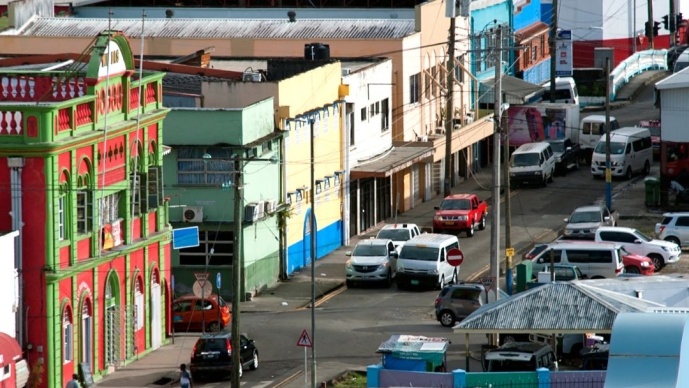Embedded Spring: Rutgers-Public Health in the Caribbean
The Program
This course highlights Public Health in the Caribbean and facilitates cultural immersion while examining the role of various agencies in key national health programs in the given cultural and economic context.
This course highlights the history, structure, and practice of Public Health in the Caribbean, seen from the perspective of a Small Island Developing State. It explores the main causes of morbidity and mortality in the region, and how collaboration within and outside of the Caribbean region is leveraged to support in-country health responses. Key national health programs along with donor-funded and supported projects are examined, and their successes and challenges are analyzed in the given cultural and economic context. This is a Spring Embedded Hybrid semester course with synchronous and asynchronous class sessions and travel over Spring Break. Students will be able to begin the coursework in January.

Program Locations

St. Lucia
Saint Lucia is an Eastern Caribbean island nation with a pair of dramatically tapered mountains, the Pitons, on its west coast. Its coast is home to volcanic beaches, reef-diving sites, luxury resorts and fishing villages.
Academics
This course involves interactive lectures guided by the instructors, facilitated discussions, online activities, group exercises, site visits, guest lectures, and group outings, and satisfies the requirement as a 3 Credit graduate elective course. It gives students first-hand experience of the way in which Global Public Health initiatives such as the CDC initiated Global HEARTS Initiative, the WHO's Universal Health Care initiative, and its Neglected Tropical Diseases Elimination Initiative and others are actualized in the real world. Such an experience will benefit students interested in Global Health work and working with diverse populations. The mixed mode of teaching allows students opportunities for cultural immersion while increasing their knowledge and scope of public health in the Caribbean.
On completion of this course which includes a required 1-week onsite component within a Caribbean country, students should be able to:
- Examine the structure and practice of public health in the Caribbean as related to the cultural and historical background of the region.
- Identify the main causes of morbidity and mortality in the Caribbean.
- Assess key country initiatives in Maternal Health, Noncommunicable Diseases (NCDs) and Vector Borne Diseases.
- Evaluate the role of local, regional, and international partnerships in health and their value to Small Island Developing States.
- Describe a given Caribbean country’s Universal Health Care System approach and analyze its strengths and challenges.
- Increase Cultural Competency/Humility by engaging with the culture and the people of the Caribbean.
- Apply experiences and concepts learned to local and global practice of public health.
Housing and Meals
Students will share rooms in a hotel. Breakfast is included every morning. Lunch will be provided at various sites and there will be a closing dinner. Students will be responsible for any other meals.
Financial Information
Program Costs
| All students | |
|---|---|
| Program cost | $1,990 |
| * tuition not included |
Program Cost includes:
- Housing
- Breakfast and lunch
- In country transportation
- Excursions
- Administrative Fees
- Emergency Medical Access Abroad
Out-of-Pocket Costs
| Flights | $1,000 |
| Additional meals | $100 |
| Books and Classroom Materials | $50 |
| Personal Expenses | $100 |
| Total | $1,250.00 |
Out-of-Pocket Cost includes:
The above costs are estimations and represent the known out-of-pocket costs students encounter during their time abroad.
Some of these expenses will be paid for prior to going abroad, such as an airline ticket, while some of these expenses, such as meals and personal expenses, will be paid in-country as part of your daily expenses. As you plan, you will need to budget these costs and spend wisely throughout your time abroad.
Program Costs
| All students | |
|---|---|
| Program cost | $2,790 |
Program Cost includes:
- Tuition
- Housing
- Breakfast and lunch
- In country transportation
- Excursions
- Administrative Fees
- Emergency Medical Access Abroad
Out-of-Pocket Costs
| Flights | $1,000 |
| Additional meals | $100 |
| Books and Classroom Materials | $50 |
| Personal Expenses | $100 |
| Total | $1,250.00 |
Out-of-Pocket Cost includes:
The above costs are estimations and represent the known out-of-pocket costs students encounter during their time abroad.
Some of these expenses will be paid for prior to going abroad, such as an airline ticket, while some of these expenses, such as meals and personal expenses, will be paid in-country as part of your daily expenses. As you plan, you will need to budget these costs and spend wisely throughout your time abroad.

